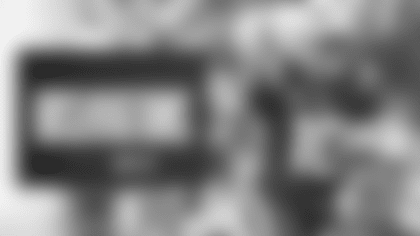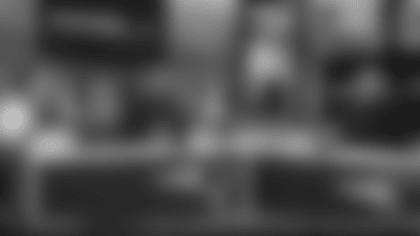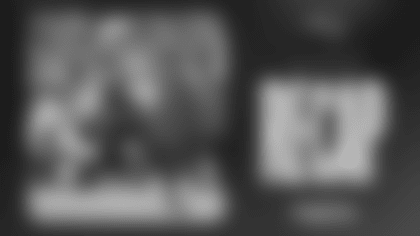MIAMI (Feb. 1, 2007) -- A shooting death in Denver, a slew of arrests in Cincinnati.
This was a black-eye season for the NFL -- something not lost on its players' union. The New Year's Day murder of Broncos cornerback Darrent Williams and the lengthy rap sheet compiled by the Bengals brought player conduct to the fore in recent months.
Soon, leaders at the NFL Players Association will invite a few stars to its offices to get their opinions on the challenges today's players face off the field, and how best to meet them.
"I'm concerned, concerned about all the issues we saw off the field," union president Troy Vincent said at the NFLPA's annual news conference. "We can't go home with the players, but I hold every player responsible for their actions. We need to sit down with the up-and-coming superstars. We need to hear from them and see what's making them tick."
Under the current NFL conduct policy, the penalties for first convictions are determined by the commissioner, while a second conviction bring automatic suspensions of varying lengths.
Chicago defensive tackle Tank Johnson will play in the Super Bowl on Sunday after receiving court approval to leave Illinois while awaiting trial on gun possession charges. Over a nine-month span, nine Cincinnati players were arrested for charges ranging from drunken driving and resisting arrest and spousal battery. Last week, receiver Chris Henry spent two days in jail after pleading guilty to allowing minors to drink in a hotel room he rented.
"The last thing I tell every team when I visit is that the only thing that can mess up the collective bargaining agreement is the players themselves," NFLPA executive director Gene Upshaw said. "We're very concerned about that."
Upshaw also confirmed that he signed off on a new league policy, announced last week, that calls for more extensive testing for performance-enhancing drugs and the addition of the blood-boosting substance EPO to its list of banned substances.
But Upshaw said he and commissioner Roger Goodell disagree on how to test for Human Growth Hormone, which is not part of the new agreement but is perceived to be a potential problem.
"I'm not for sticking needles into players every five minutes," Upshaw said.
The executive director said the union will also study how penalties and suspensions affect incentives, bonuses and Pro Bowl trips. This season, San Diego linebacker Shawne Merriman was voted an All-Pro despite missing four games for violating the league's steroid policy. Several players said he shouldn't be eligible for awards because he tested positive.
In other news:
-- Upshaw addressed rumblings that owners might void the new collective bargaining agreement in 2008, possibly to restructure the way they and the union do business in the salary-cap era. Upshaw favored the move because it would bring about an uncapped year in 2010. The possibility of an uncapped 2007 season helped the sides hammer out a collective bargaining agreement last March.
"If the owners believe it's in their best interest to go into an uncapped year in 2010, so be it," Upshaw said. "We never wanted the cap in the first place."
-- The NFLPA extended Upshaw's contract through 2010. The former Raiders lineman has been in his role since 1982.
"It's imperative for where we are as an organization," Vincent said. "We needed to keep stability."
-- The union released its biannual turf survey, in which players rank their favorite and least favorite playing surfaces.
Raymond James Stadium in Tampa was rated the best, Gillette Stadium in New England the worst. The survey, however, was conducted before the Patriots replaced their natural turf with FieldTurf after a game against the Jets in November.
Upshaw was encouraged changes could be made that quick, as opposed to the glacial pace at which old Astroturf fields were upgraded in the '70s, '80s and '90s.
"What's changed is that owners don't want to risk their players getting hurt," he said. "They're saying, why run your thoroughbreds on a mudpack?"
But the quick change could result in at least one debate, possibly to be taken up by the competition committee in the offseason: whether it's fair for teams to go from grass to artificial surface in the middle of a season.






























